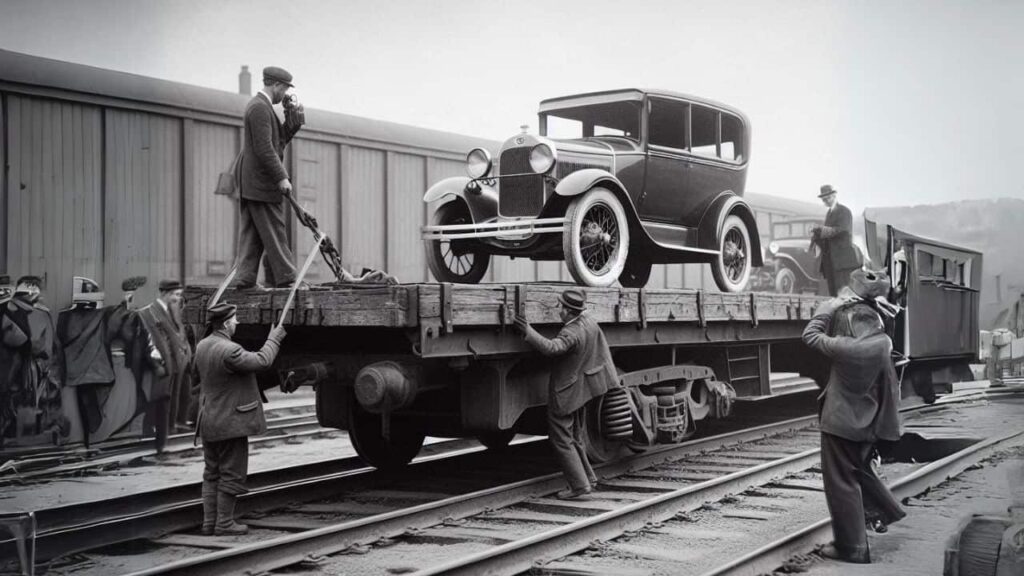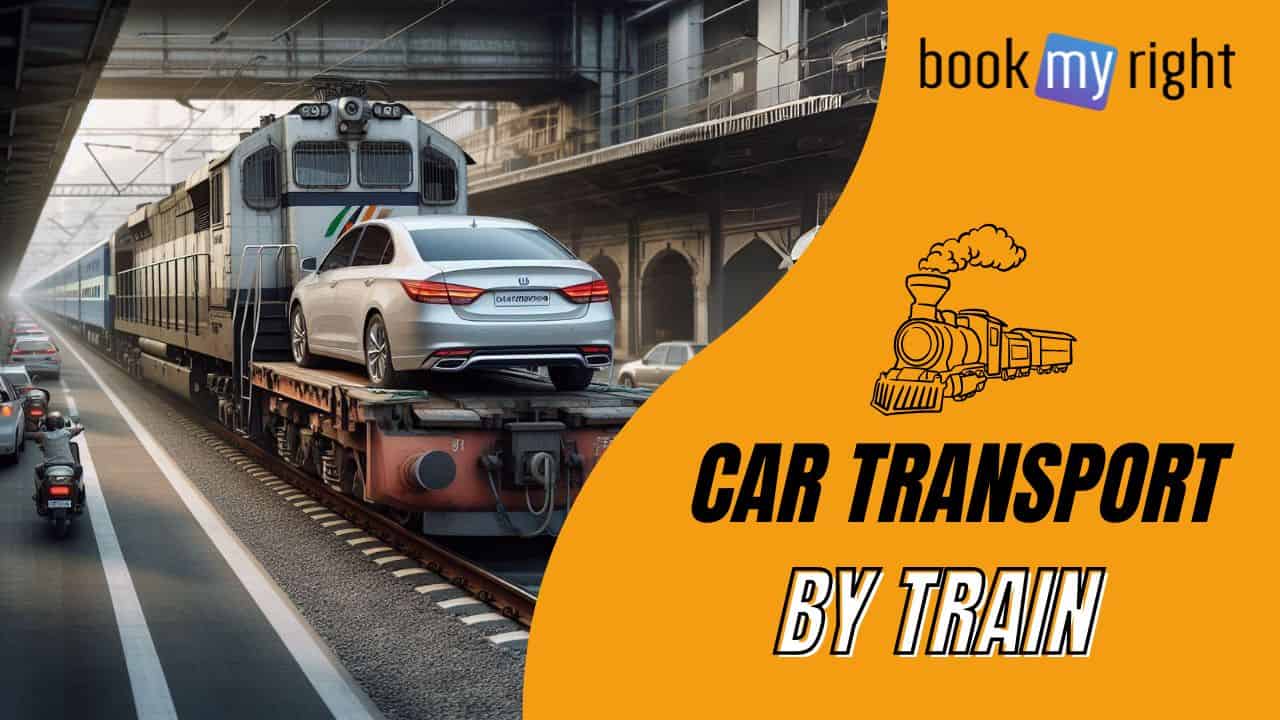Our car undoubtedly happens to be one of our most cherished assets. But when we are compelled to relocate to a different city usually owing to transfers or job requirements, transport our car tends to become something which makes us quite worried. After all, we would never want our car to get even the tiniest of scratches in the process of relocation. And to avoid such things, transport car by train happens to be one of the most convenient options.
But at the same time, transport car by train in India requires you to complete a number of formalities.
Here, through this post, we are going to clarify all your doubts that you might be having regarding the transport of cars by train in India. Stay with us as we give you a descriptive overview of the entire process and the costs associated with it.
Let’s proceed.
Things To Consider Beforehand
Before you get started with the process of transport car by train, there are certain things to be performed beforehand. They make the entire process of transportation quite hassle-free.
Let’s throw some light on them:-
Booking
The key factor in transport car by train is ensuring availability, which can vary based on season and route. Booking in advance after confirming availability is recommended for a smooth experience.
Documentation
The process of booking requires you to have all the documentation of your car in place. Some of the most important documents of your car include the following:-
● Insurance papers
● Vehicle registration papers (RC)
● Emission papers.
You must submit a photocopy of them to the concerned authority along with a photocopy of your identity proof.
Last but not least, you will also have to fill out a transportation form at the parcel office and submit it to the concerned authorities.
Fuel Level
While preparing your car to get transported by train, make sure to keep the fuel tank quarter full. Not only will it lower the overall weight of your car, but will also minimize the probability of any leakages.
Doors and Windows
Keep the doors and windows of your car locked and closed. Doing so will prevent any kind of tampering that might occur during transit.
Brakes
Make sure that the brakes of your vehicle are in working condition. That will restrict any possible movement of the vehicle that may occur during transit.
Inflate the tyres
Keeping the tyres of your vehicle inflated will assist in countering any kind of damage that may occur to the vehicle during loading and unloading. If you have a deflated or flat tire in your vehicle then it must be fixed right away.
Battery
The battery of your car must either be disconnected or it must be secured to avoid the possibility of draining or short-circuit during transit.
Take care of your belongings
Make sure to remove all personal belongings from your car before sending it for transportation. The Railways staff in any case is not responsible for any items left inside the vehicle.
Disabling the anti-theft devices
Before transporting your vehicle, make sure to deactivate any anti-theft devices or alarms that have been installed to prevent any disruptions during transit.

Process Of Transporting Your Car In India By Train
The process of transport car in India by train will be initiated with booking. Then you will have to get the photocopy of all the necessary documents related to your car submitted to the concerned authority.
Afterwards, you will have to follow the below-mentioned steps:-
Loading the car on the train
The next step involves taking the car to the railway loading area. The concerned staff then loads the car into a car carrier wagon.
The car carrier wagon is designed in a way that keeps your car fixed in place with the use of chains and jammers. You must ensure that your car is safely put in the wagon.
When you transport car by train to a new place, you are also required to have an idea about the costs that will be associated with it. It is dependent on a number of factors.
We are going to discuss them quite soon.
Tracking
There are some railway services which provide you the facility of tracking. It enables you to have an idea about your car’s progress during transit.
Receiving your car at the desired location
Once the train that is transporting your car reaches the desired location, you can collect your car from the designated unloading point. Just make sure to carry all the necessary documents to claim your vehicle.
Don’t forget to “inspect”
After receiving your car, make it a point to inspect both the exterior and interior of the car. If you see any damage, immediately report the concerned authorities.
Other formalities
Even after receiving your car, there are some formalities that need to be completed. Those may include signing on some document(s) where you can also give a review about the service provider and railway authorities.
Once you have followed all the above-mentioned steps, you can drive the car back home. In case, there are any local regulations to be followed, make sure to comply with them.

Costs Associated in Transport car by Train
Before you plan to transport car by train, it’s wise to have an estimate of the costs that are associated with the entire process. Let’s have a look at the factors that influence them:-
Type and Size of the Vehicle
Large vehicles such as SUVs or MUVs come with increased costs due to the additional care required in handling, while hatchbacks or sedans typically have lower associated costs.
Distance
The cost of transportation increases with distance. For example, transporting a vehicle from Mumbai to Mussoorie is more costly than from Mumbai to Ahmedabad.
Transit Insurance
If you choose to go with transit insurance for your vehicle, it may elevate the costs associated. But at the same time, you will be compensated if any damage happens to your vehicle during transportation.
Now that you have an idea about the factors that can influence the cost associated with the transportat car by train, let’s have a comparative cost analysis of car transport from the major Metropolitan cities.
For this comparative analysis, we are taking into consideration a standard-sized Maruti Suzuki S-Presso which falls in that category of hatchback cars.
| S No. | Cars transported from | to City | Estimated Cost |
| 1 | Delhi | Mumbai | ₹ 6,000 – ₹ 10,000 |
| 2 | Mumbai | Kolkata | ₹ 7,000 – ₹ 12,000 |
| 3 | Kolkata | Chennai | ₹ 8,000 – ₹ 13,000 |
| 4 | Chennai | Bangalore | ₹ 4,000 – ₹ 7,000 |
| 5 | Bangalore | Delhi | ₹ 10,000 – ₹ 15,000 |
| 6 | Delhi | Hyderabad | ₹ 9,000 – ₹ 13,000 |
| 7 | Hyderabad | Bangalore | ₹ 8,000 – ₹12,000 |
| 8 | Delhi | Kolkata | ₹ 7,000 – ₹ 12,000 |
| 9 | Ahmadabad | Mumbai | ₹ 10,000 – ₹ 12,000 |
If you have an SUV (like Toyota Fortuner) or a luxury sedan (like Mercedes S-Class), the rates mentioned above will go up by Rs. 2000-3000.
Parting Words
It’s important to note that railways do not offer door-to-door service. Therefore, after your vehicle is delivered to your destination, you are responsible for driving it back home.
Additionally, carefully inspect your car upon arrival and report any damages to Indian Railways. By following their guidelines, you can ensure safe transportation for your vehicle, ultimately serving your best interests.
Frequently Asked Questions (FAQs)
What is the prime benefit of transporting a car by train in India?
Transporting a car via train in India has the advantage of being a cost-effective choice for long distances. It also provides a secure method of transportation thereby reducing the likelihood of damage or theft.
Is transporting cars by train in India safe?
On selecting a reliable rail freight service you can be rest assured about the safety of your car being transported by train. Proper research and communication with the service provider are also recommended to serve that purpose.
What all necessary checks must be performed while preparing the car for train transport?
Getting a car ready for train transport requires several crucial checks to ensure safety and compliance. This includes filling out all required paperwork, examining the car for any harm, securing loose objects, verifying fluid levels, disconnecting the battery, maintaining a quarter tank of fuel, checking tyres, testing brakes, locking doors and windows, and relying on any specific guidelines given by the transportation company. Doing so will guarantee the car is prepared for safe transport car by train.
Is there any legal framework behind the entire process of transporting a car by train in India?
Laws like the Indian Railways Act of 1989, and rules set by the Indian Railways regulate the transportation of cars by train in India. Procedures and requirements may vary depending on the state and railway zone. It is advisable to consult Indian Railways or a legal expert for up-to-date information on the legal aspects of car transport by train in India.
What documents are necessary when it comes to transporting a car by train in India?
Some of the most important documents that are necessary to transport a car by train in India are as follows:-
● Vehicle registration papers
● Insurance papers
● Emission papers
● Transportation form (it is filled at the parcel office and it highlights the transport agreement)
You have to submit original/photocopies of the above (as required) along with your identity proof.
You May also like to read:
How to Find Cheap and Best Packers and Movers for any Relocation in India?
7 Shifting Tips To Make Your Mover Comfortable and Enjoyable.

